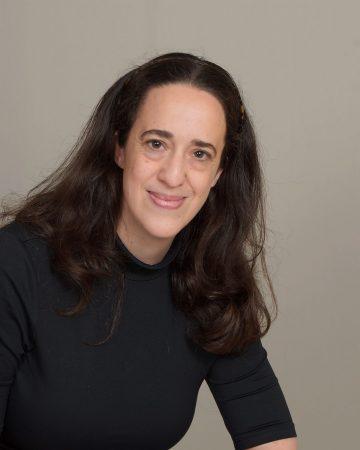Shelley Fairweather-Vega, M.A. graduate in Russian, East European, and Central Asian Studies (2006), ATA-certified Russian to English translator, enthusiastic translator from Uzbek to English. She is freelance translator since 2006.
– I know that you translated a Kazakh writer’s book in English and contributed to disseminating it among English-speakingpeople. For you, is translation a hobby or a profession?
– My contribution to our family income is earned mostly from translation, sometimes for purely commercial purposes, sometimes for more artistic texts. I also earn money doing work related to translation, such as editing or consulting, and I run a service that helps public libraries in the United States buy books written in Russian. So, translation is really how I earn my living. It’s my business, and for this business,I advertise, keep a website, pay taxes, and pay myself a salary.
I understand that many good translators treat translation as a hobby, or an amateur activity, and do it for the moral satisfaction of it, not for the money. That’s admirable. But I disagree with the notion that translation can only be done by amateurs, and that professional translators can have no role in translating good, creative, artistic, important books.
Second, translation is a highly skilled activity. It’s one of those skills that you can only really master after 10,000 hours of practice. I don’t think I could make myself devote 10,000 hours to a hobby, but for a career, it’s reasonable. Publishers and other interested parties should be willing to pay for that set of professional skills.
Third, considering myself a professional translator means I am part of this profession, and I have an obligation to give back to the profession. For that reason I’m a member of several national translation organizations, and I’m even the president of my local one, in the northwest United States (called NOTIS). Being a member and leader within those organizations means I can help my colleagues flourish in this profession by providing networking opportunities, training, and a professional community for them.
– For you what are the first requirements when translating some works? How do you choose them?
– Every work is different, of course. But when I sit down to begin translating a new poem or story, I have to first do some detective work. I ask myself where this text comes from – who is the author? What was he or she trying to achieve in writing this piece? What is unique about the style or attitude of the writing? What is the story really about, and how does it make me feel as a reader? After I find answers to those questions, I begin to understand the text well enough to translate it. Only after that comes the more detailed work of translation: making decisions about individual words and phrases.
I find it very difficult to translate writing that I don’t like, although if the writing is good, I can overcome that difficulty. When the writing is poor and it’s not to my taste, it’s very difficult for me to translate well. So a certain standard of quality in the original is required before I can translate a text. Ideally, it will also appeal to me, personally, on an emotional and aesthetic level, too.
– You’ve translated several books byCentral Asian writers into English. What makes them special?
– It was partly just luck. I studied international relations at university, focusing on the Soviet Union and the countries that emerged when the USSR collapsed. I studied the Russian language. When that led me to literature and culture, I found that everyone seems to know and love Russian literature and Russian film and music and ballet, etc., but that very few people knew anything about creative work from Central Asia. Writing from Kazakhstan or Uzbekistan was treated as a kind of an exotic curiosity, a special, weird, unfamiliar kind of Russian literature. But there seemed to be so little of it. I began studying Uzbek in graduate school and started reading some of the early 20th-century Uzbek writers like Cho’lpon and Qodiriy. That made me wonder what else was hidden away in Central Asia, and what people in the region were writing about now.
Uzbek writer Hamid Ismailov discovered that I could translate from Uzbek and he offered me some of his novels and short stories to translate. Those have now almost all been published, with good reviews. And Kazakh translator and literature expert Zaure Batayeva contacted me for help translating work by a whole collection of women writers from Uzbekistan, including her own work. She introduced me to many more new writers. So, thanks to Ismailov and Batayeva, now I know that there is plenty of interesting creative work being written in Central Asia, and if we can move aside Russian literature, which is so overbearing, we can make space in world literature to read new work from the countries that have been in Russia’s shadow. As a translator, I have great opportunities to read and explore, and, I hope, bring back the best of what I find to people to read in English.
– You translated Talasbek Assemkulov’snovel into English. He was one of the most favorite authors of the Kazakh people. Did you get an offer to translate this novel or did you choose it yourself?
– To be honest, when I agreed to translate “Taltus,” I had no idea what an important book it was. I soon found out! Talasbek’s widow Zira Naurzbayeva is one of the writers I met through Zaure Batayeva, and I admire her writing immensely. She arranged for the funding to translate Taltus, and she wrote to me, very excited, to ask if I could handle the job. We had a very tight deadline and I had to work quickly, using both the original Kazakh text and the Russian translation that Zira was creating at the same time. Translating the book into English was truly an adventure, one with a happy ending. During the process, and after it was published here in the US as well as in Kazakhstan, I learned how important Talasbek and his work are to so many people, so I’m very grateful to Zira for giving me the opportunity to work on the book.
– Some people say that ethnographic concepts such as Kazakh traditions and music make translation difficult? Do you agree with that?
– I already mentioned that we had to work quickly, which always makes translation more difficult. But the bigger challenge, for me, was navigating a viewpoint that was very foreign to me. There is a worldview in the novel that is quite different from what I know personally and also different from what I know about the history of Kazakhstan – I learned that history mostly from Russian sources, and now I had a new narrative to learn and translate.
Yes, I had to learn a lot about the dombyra and the art of the kuy, as well. There are a lot of passages in the novel that describe the music, so half of what I know, I learned from reading the book as I translated it. Those passages are beautifully descriptive, so it was a pleasure to learn what I needed to learn in order to translate them well.
Another difficulty in the translation was that even after I did my research, and learned about specific traditions or artistic practices or historical events, I then had to decide how much to explain to the people who would read the English version. Should I share with them everything I learned, maybe in footnotes? Fairly early in the translation process, I decided not to do that. I didn’t want to turn the novel into a textbook. If readers encounter something in it that they don’t understand, they can do their own research, and learn. These traditions and things are not strange and foreign to the characters in the novel, and I didn’t want to present them to my readers as strange and foreign, either. Those are decisions that translator have to make with every text they translate, but with this book, Ithink, there was more new cultural information than usual for English-language readers.
– How did the English-speaking reader react to Talasbek’s novel?
– You’ve translated a book by Uzbek writer Hamit Ismailov into English, what do you think is special about Hamit’s book?
– I’ve translated two of his novels, actually, and one thing that makes him such a fascinating writer is that every book he writes is different from all the rest. The two I translated, Gaia, Queen of Ants and Of Strangers and Bees, are written in very different styles and each has its own tone. In fact, even within Of Strangers and Bees, there are multiple storylines, each with their own style. His ability to write like that proves he’s a real artist, and it makes translating his work that much more interesting and challenging. Ismailov is the first Uzbek author I’ve read who doesn’t sound like all the other Uzbek writers, the ones from the early Soviet era whose work I read as a graduate student. This is natural, of course; he’s writing several generations later and he has traveled the world, so he has a much different perspective on life. But Ismailov has the courage to write in his own way, even while honoring his countrymen who wrote before him.
– Are American readers interested in the literature of the countries of Central Asia?
– Would you like to translate another Kazakh authors’ works into English?
– There are many talented Kazakh authors who I would love to translate. I’ve started work on half a dozen projects that I am currently showing to American and English publishers, hoping that someone will be interested and commit to publishing them. This includes all the authors Zaure Batayeva introduced me to, including Zira Naurzbayeva (I’ve published one of her stories and one essay in English so far) and Lilya Kalaus (some of her texts on life during the coronavirus pandemic will be published in English very soon in my translation), and also Oral Arukenova, Nadezhda Chernova, Zhumagul Solty, Olga Mark and more; we hope to find a publisher for a whole anthology of recent women’s writing from Kazakhstan. From an older generation, I’vebegun translating Qabdesh Zhumadilov, who tells stories from history that nobody else is telling. I love and very much admire Dastan Kadyrzhanov’s long free-verse novel in Russian, История про хорошего и доброго парня. And then from a younger generation, I’ve recentlystarted working with Zaure Turekhan, whose writing for children could inspire an interest in Kazakhstan among younger readers. This process, of promoting books to publishers, takes a very long time, but it’s worth the effort. And it’s the most sacred work I can do as a professional translator.
Interviewed by Duisenali Alimakhin







